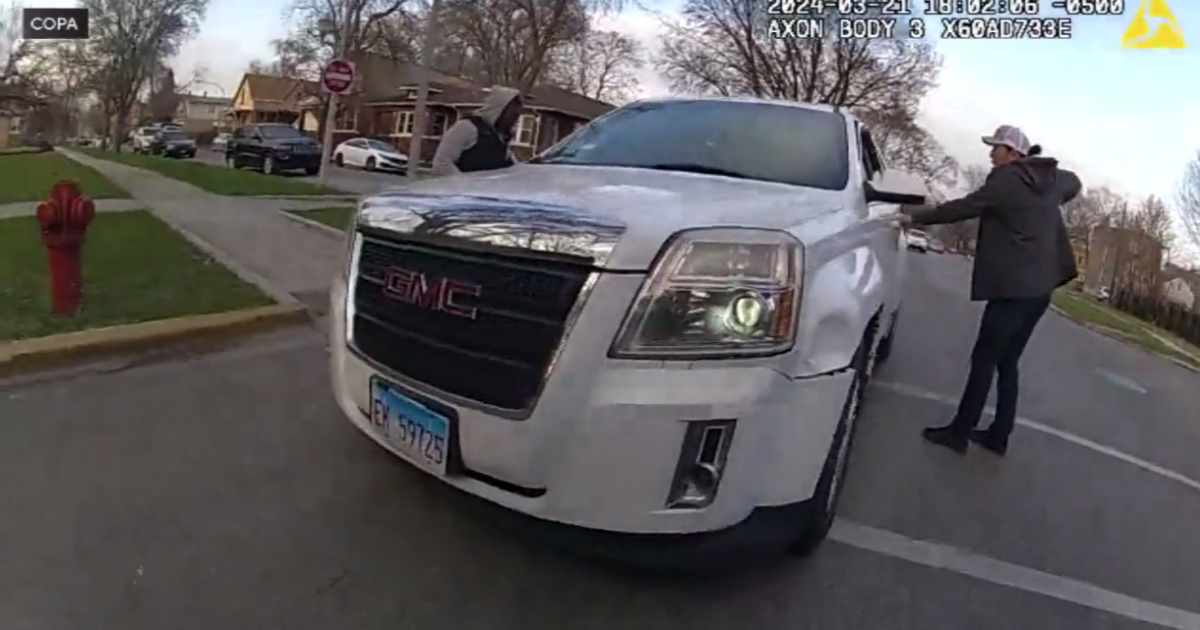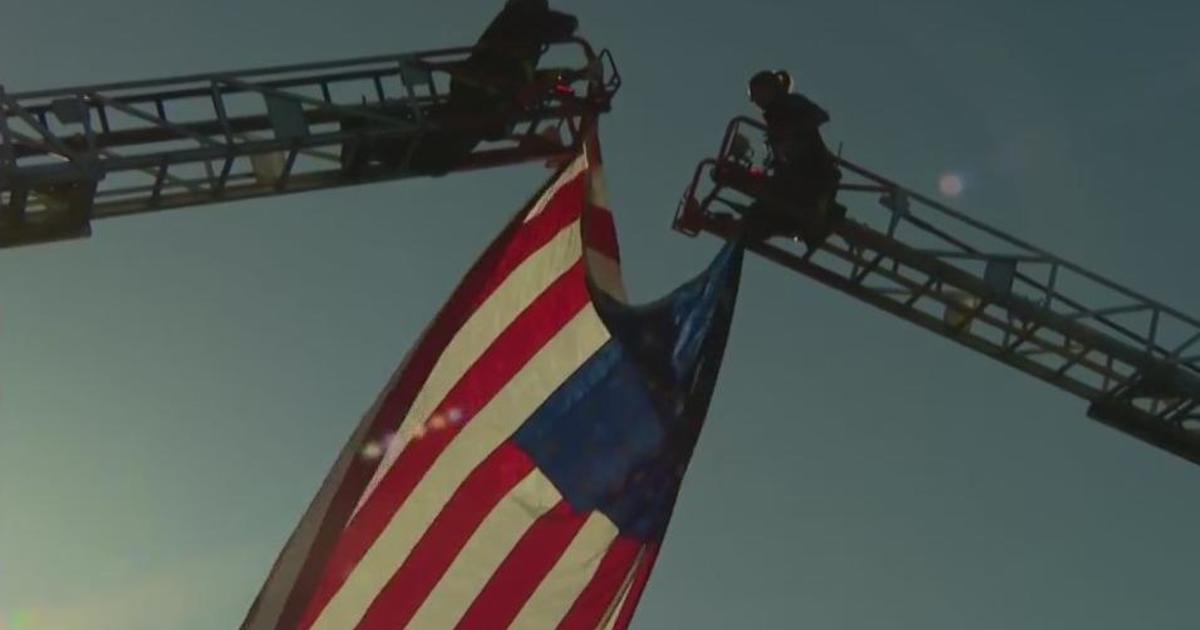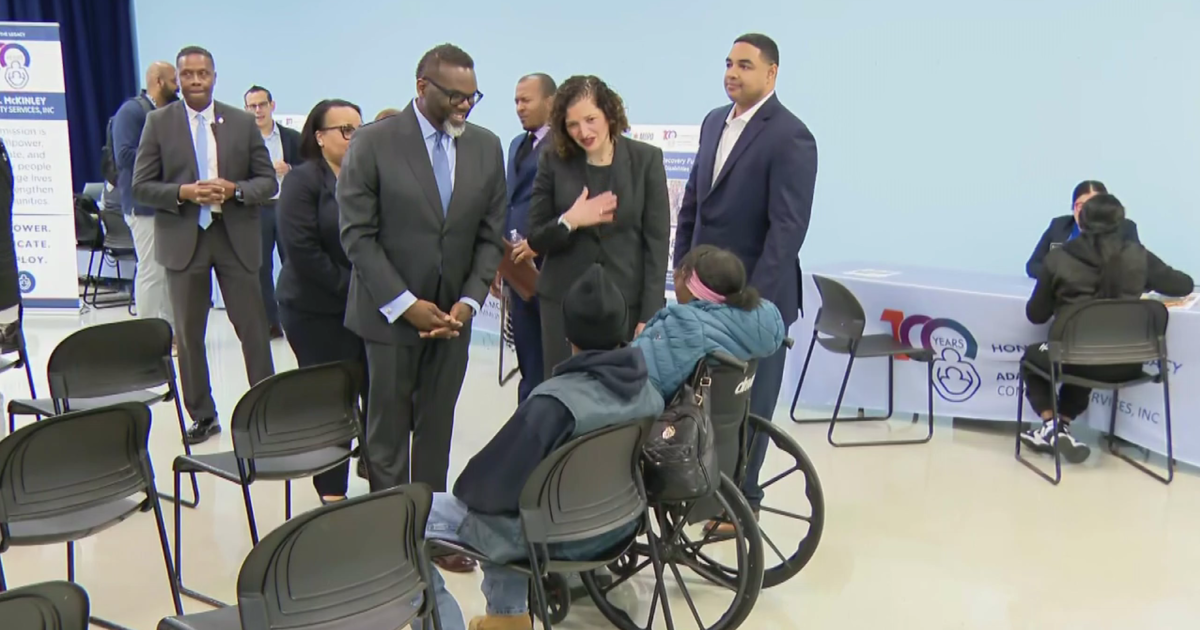Vote On Civilian Police Oversight Board Delayed In Dispute Over Who Gets Final Say On CPD Policy
CHICAGO (CBS) -- Mayor Lori Lightfoot's plan to create a civilian police oversight board was held up on Tuesday, amid a dispute over who would have ultimate authority for setting Chicago Police Department policy.
City Council Public Safety Committee Chairman Ald. Chris Taliaferro (29th) said the Grassroots Alliance for Police Accountability, a group of community activists which has been negotiating the proposed Community Commission for Public Safety and Accountability, wants the new oversight board to approve all CPD general orders and policies, but the mayor wants to have final say.
The Public Safety Committee had been scheduled to vote on the ordinance to create the new commission on Tuesday, but Taliaferro said he will hold the proposal in committee while activists and the mayor's office continue negotiations on final language.
"There's just one minor issue, and that issue is whether or not who will make the final approval on any policy before the Chicago Police Department if there's a disagreement between the commission and the Police Department, who makes that final decision? And so that's the only issue I believe that's being discussed right now," he said.
Taliaferro said, as the ordinance is currently drafted, the new commission would have the final say on policy if there is a dispute between the oversight board and the department. The alderman said the mayor clearly doesn't like that language.
"Obviously not," he said.
The mayor's office declined to discuss specifics of the dispute regarding who will set CPD policy, insisting the delay on a vote on the proposed ordinance was meant to give aldermen more time to review the plan that was presented to them at the end of last week.
"Following helpful feedback received during aldermanic briefings late last week, the City is working with GAPA to address remaining questions on this new governance structure and the plan for its implementation. As part of our effort to ensure aldermen continue to have ample time to review such a significant proposal, we are holding the ordinance so that the City and GAPA can continue to collectively address their feedback," mayoral spokesman Patrick Mullane said in an email.
GAPA representatives did not immediately respond to a request for comment.
Lightfoot's office last week announced it had reached a compromise with GAPA on an ordinance to create a seven-member Community Commission for Public Safety and Accountability. It also would establish three-member elected district councils in each of the city's 22 police districts. Those councils would nominate candidates for commission members, who would ultimately be chosen by the mayor and confirmed by the City Council.
The ordinance would set out specific criteria for commission members, who would be chosen based on expertise in areas such as civil rights, social work, law, and work with immigrant communities. At least two commission members would be between the ages of 18 and 24, and would have experienced police misconduct.
Earlier versions of the ordinance would have given the commission the authority to hold a "no confidence" vote against the superintendent. The mayor and the City Council would then have to decide whether to remove the superintendent. However, that language has since been removed from the proposal, and the sticking point now appears to be deciding who has the ultimate authority on the department's policies and general orders.
Taliaferro said he personally believes it's necessary for the new commission to have final say on CPD policy.
"I think that's why we are putting this commission in place," he said. "You begin to ask whether or not you even need a commission if they have no authority, no responsibilities, or no power."
However, the chairman said if the mayor and GAPA agree to a proposal that gives Lightfoot ultimate authority for setting CPD policy, he'll support it.
Taliaferro declined to say if he would hold a committee vote if the mayor's office moves forward with a plan that gives her final say over CPD policy, but the Grassroots Alliance objects.
"I can't say what we'll do at that point, because we're not faced with that yet. Once we are faced with it, then we'll definitely answer that one,"
Chicago Fraternal Order of Police President Kevin Graham attended Tuesday's committee meeting, fully prepared to speak out against the proposal for a civilian police oversight board. He said the department doesn't need any more oversight.
"I think one of the biggest concerns is that we have a great deal of oversight in this Police Department already. We also have a consent decree, and we have monitors in place. We're spending more money to have more police oversight, but we can't get a police contract? I think there's a strange irony on that, and that we need to get our priorities straight," he said.
Graham said it's also frustrating that the union representing rank-and-file officers hasn't been included in negotiations on the proposed oversight commission, even though activist groups have been.
"We have no seat at the table. Once again the city is unilaterally making decisions," he said.
Taliaferro, however, noted the commission would not have oversight over officers themselves, or over disciplinary matters.
"This strictly has to do with policy, hiring and firing of a police superintendent, but is not oversight over the officers specifically," he said.
Ald. Harry Osterman (48th), one of the co-sponsors of the original plan to create a civilian oversight board, declined to discuss specifics of the ordinance, but said he's confident an agreement can be reached soon. He said a measure of civilian oversight of the Police Department is necessary to help keep the community engaged, and rebuild public trust.
"I think that's kind of our ultimate goal, and I think that's something that we're working on," he said.



